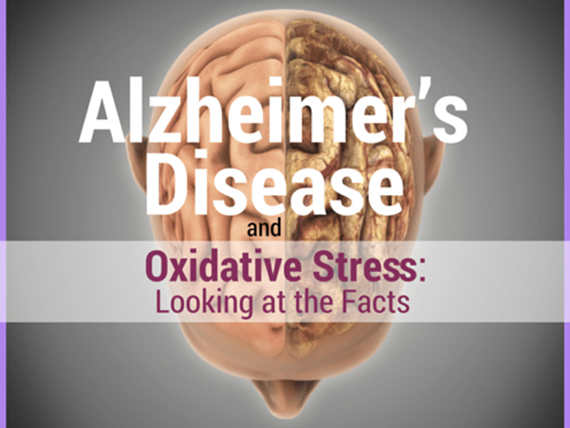Insights from Yeast on Oxidative Stress in Alzheimer’s Disease, Focusing on Ahp1p/Prx5
Abstract
(ISSN 2638-1311)
OBM Geriatrics is an international peer-reviewed Open Access journal published quarterly online by LIDSEN Publishing Inc. The journal takes the premise that innovative approaches – including gene therapy, cell therapy, and epigenetic modulation – will result in clinical interventions that alter the fundamental pathology and the clinical course of age-related human diseases. We will give strong preference to papers that emphasize an alteration (or a potential alteration) in the fundamental disease course of Alzheimer’s disease, vascular aging diseases, osteoarthritis, osteoporosis, skin aging, immune senescence, and other age-related diseases.
Geriatric medicine is now entering a unique point in history, where the focus will no longer be on palliative, ameliorative, or social aspects of care for age-related disease, but will be capable of stopping, preventing, and reversing major disease constellations that have heretofore been entirely resistant to interventions based on “small molecular” pharmacological approaches. With the changing emphasis from genetic to epigenetic understandings of pathology (including telomere biology), with the use of gene delivery systems (including viral delivery systems), and with the use of cell-based therapies (including stem cell therapies), a fatalistic view of age-related disease is no longer a reasonable clinical default nor an appropriate clinical research paradigm.
Precedence will be given to papers describing fundamental interventions, including interventions that affect cell senescence, patterns of gene expression, telomere biology, stem cell biology, and other innovative, 21st century interventions, especially if the focus is on clinical applications, ongoing clinical trials, or animal trials preparatory to phase 1 human clinical trials.
Papers must be clear and concise, but detailed data is strongly encouraged. The journal publishes a variety of article types (Original Research, Review, Communication, Opinion, Comment, Conference Report, Technical Note, Book Review, etc.). There is no restriction on the length of the papers and we encourage scientists to publish their results in as much detail as possible.
Publication Speed (median values for papers published in 2023): Submission to First Decision: 5.7 weeks; Submission to Acceptance: 17.9 weeks; Acceptance to Publication: 7 days (1-2 days of FREE language polishing included)
Special Issue
Oxidative Stress and Alzheimer’s Disease
Submission Deadline: August 30, 2019 (Open) Submit Now
Guest Editor
Luigi Iuliano, MD
Professor, Department of Medical Sciences and Biotechnology, Sapienza University of Rome, Italy
Research Interests: oxidative stress related disorders; atherosclerosis and neurodegenerative diseases; clinical and epidemiological studies; oxidative stress; oxidative stress biomarkers

About This Topic
Alzheimer’s disease (AD) is the most frequent form of neurodegenerative disorder associated with dementia in the elderly. The expansion in the prevalence of this disease due to the increase in life expectancy is a worldwide socioeconomic challenge. As for other forms of dementia, there is no cure for AD and intense research is ongoing to determine pathophysiological mechanisms and to find targeted therapies. AD is influenced by both genetic and epigenetic risk factors. The strongest genetic risk factor is the presence of the epsilon4 allele of the apolipoprotein E gene, which encodes a protein that has a crucial role in cholesterol metabolism. However, the role of genetic factors is more confined to the early onset of disease, which constitutes a fraction of the AD burden observed in the elderly. Among epigenetic factors, oxidative stress, which results from high free radical flux unbalanced by the antioxidant system and leads to damage of biomolecules resulting in cellular insult, is a well-known pathophysiological player in neurodegenerative disorders. The link between oxidative stress and AD is solidly supported by basic and translational research and new aspects continues to emerge in the literature. As Guest Editor for this Special Issue of the journal OBM Geriatrics, it is my pleasure to invite you to submit a feature article, which may be either a review or a research paper, on the topic of Oxidative Stress and Alzheimer’s Disease.
Manuscript Submission Information
Manuscripts should be submitted through the LIDSEN Submission System. Detailed information on manuscript preparation and submission is available in the Instructions for Authors. All submitted articles will be thoroughly refereed through a single-blind peer-review process and will be processed following the Editorial Process and Quality Control policy. Upon acceptance, the article will be immediately published in a regular issue of the journal and will be listed together on the special issue website, with a label that the article belongs to the Special Issue. LIDSEN distributes articles under the Creative Commons Attribution (CC BY 4.0) License in an open-access model. The authors own the copyright to the article, and the article can be free to access, distribute, and reuse provided that the original work is correctly cited.
Submitted manuscripts should not have been published previously, nor be under consideration for publication elsewhere (except conference proceedings papers). Research articles and review articles are highly invited. Authors are encouraged to send the tentative title and abstract of the planned paper to the Editorial Office (geriatrics@lidsen.com) for record. If you have any questions, please do not hesitate to contact the Editorial Office.
Welcome your submission!
Publication
Insights from Yeast on Oxidative Stress in Alzheimer’s Disease, Focusing on Ahp1p/Prx5by
Abstract The yeast, Saccharomyces cerevisiae, the model eukaryote, has provided many insights into molecular and cellular biology, as well as insights into many human diseases. In this paper we present some insights on how yeast studies are contributing to knowledge about the role of oxidative damage to cell health, and how one of the key players [...] |
TOP